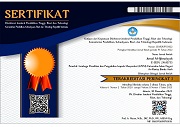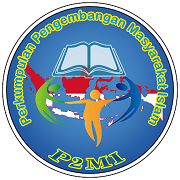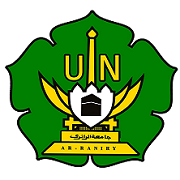ANALYSIS OF COMMUNITY DEVELOPMENT ZAKAT PROGRAM AT INSTITUTIONS NATIONAL ZAKAT AMIL AGENCY JAKARTA
Abstract
Keywords
Full Text:
PDFReferences
Al-Qaradawi, Y. 1996. Hukum Zakat [The Law of Zakat]. (Vol. 148). Litera Antarnusa.
Badan Pusat Statistik. 2018. Berita Resmi Statistik [Official Statistical News]. In Central Bureau of Statistics (Issue July). https://www.bps.go.id/pressrelease/2018/07/16/1483/persentase-penduduk-miskin-maret-2018-turun-menjadi-9-82-persen.html.
Basrowi, & Suwandi. 2008. Memahami Penelitian Kualitatif [Understanding Qualitative Research].
Canggih, Clarashinta, et al. 2017. Potensi dan Realisasi Dana Zakat Indonesia [Potential and Realization of Zakat Funds in Indonesia]. Jurnal al-Uqud (Journal of Islamic Economics), 1 (1): 14-26.
Hafidhuddin, D. 2002. Zakat dalam Perekonomian Dunia [Zakat in the World Economy].
Iswardani, K., and H. Hamid. 2020. The Komparatif Study Between The Point of View of Muhammad Bin Shalih Al-Utsaimin and Yusuf Al-Qaradhawi About Zakat Fitri.
Kasanggi, W. L. 2017. Peran Zakat dan Wakaf dalam Pemberdayaan Ekonomi Dhuafa di KSPPS BMT Marhamah Wonosobo [The Role of Zakat and Waqf in Empowering the Poor in KSPPS BMT Marhamah Wonosobo]. https://core.ac.uk/download/pdf/154829047.pdf.
Kementerian Agama, R. 2013. Kementerian Agama Rl Direktorat Jenderal Bimbingan Masyarakat [Ministry of Religion RI Directorate General of Community Guidance].
Mahdalena, M., S. Suryani, and I. Ismaulina. 2021. Analisis Peningkatan Kesejahteraan Nasabah Terhadap Pembiayaan Murabahah (Studi Kasus Bank Aceh Syariah Capem Krueng Geukueh) [Analysis of Client Welfare Improvement Through Murabahah Financing (Case Study of Bank Aceh Syariah Capem Krueng Geukueh)]. Islamic Banking: Jurnal Pemikiran dan Pengembangan Perbankan Syariah 6 (2): 279–298. https://doi.org/10.36908/isbank.v6i2.127.
Muslim. Prinsip Manajemen Pendidikan Islam dalam Persepektif Qur’an [Principles of Islamic Education Management in Qur'anic Perspective]. Disertasi, UIN Raden Intan Lampung. 2020. http://repository.radenintan.ac.id/9714.
Nugroho, A. A. 2018. Pembangunan Ekonomi Berbasis Potensi Wilayah dan Pemberdayaan Masyarakat: Analisis Pengembangan Ekonomi Kabupaten Ngawi [Economic Development Based on Regional Potential and Community Empowerment: Analysis of Economic Development in Ngawi Regency]. Jurnal Pembangunan dan Kebijakan Publik 8 (2): 30–36.
Samsudin, S. 2006. Managemen Sumber Daya Manusia [Human Resource Management]. (pp. 16–46).
Santoso, A., Witjaksono, and E. Kurniawati. 2020. Pelatihan Manajemen Usaha Dan Pembuatan Merk [Business Management Training and Brand Creation]. Journal of Appropriate Technology for Community Services 1 (1): 14–20. https://doi.org/10.20885/jattec.vol1.iss1.art3.
Saputra, W. E. (2020). Pengaruh Pengorganisasian dan Koordinasi Terhadap Kinerja Pegawai Pada Kementerian Agama Kabupaten Ogan Komering Ulu Timur Timur [The Influence of Organization and Coordination on Employee Performance at the Ministry of Religion, Ogan Komering Ulu Timur Regency]. Jurnal Ilmiah Edunomika, 4 (02), 464685.
Suhandi, Andi. 2023. Strategi Fundraising dan Program Pemberdayaan Masyarakat untuk Meningkatkan Ekonomi Mustahik pada Lembaga Filantropi Baznas Kabupaten Kuningan [Fundraising Strategies and Community Empowerment Programs to Improve Mustahik Economy in Baznas Kuningan Regency]. Jurnal AB-JOIEC: Al-Bahjah Journal of Islamic Economics 1 (1): 44-55.
Suherli, Ian Rakhmawan, et al. 2023. Menelisik Kebijakan Fiscal di Masa Kejayaan Islam: Studi Dinasti Umayyah dan Abbasiyah [Exploring Fiscal Policy During the Golden Age of Islam: A Study of the Umayyad and Abbasid Dynasties]. Syarikat: Jurnal Rumpun Ekonomi Syariah 6 (1): 2654-3923, e-ISSN 2621-6051.
Sulistyaningsih, Arifin, A. Z., and D. Nurhaedi. 2016. Community Based Empowerment: Studi pada Kelompok Usaha Bersama 'Sedap Melati' [Community-Based Empowerment: A Study on the 'Sedap Melati' Joint Business Group]. Sosiologi Reflektif 10 (April): 147–158. https://media.neliti.com/media/publications/131648-ID-community-based-empowerment-studi-pada-k.pdf.
Sumarlin, Ismawati, et al. 2020. Sosialisasi Pentingnya Zakat di Lingkungan Bontoparang Kelurahan Bontokadatto Kecamatan Polongbangkeng Selatan Kabupaten Takalar Sulawesi Selatan [Socialization of the Importance of Zakat in the Bontoparang Environment, Bontokadatto Village, Polongbangkeng Selatan District, Takalar Regency, South Sulawesi]. Jurnal Abdimas Unwahas 5 (1): April.
Sundaya, Y. 2009. Ekonomi Islam: Survey Literature [Islamic Economics: Literature Survey].
Syarqawie, F. 2014. Fikih Muamalah [Fiqh of Muamalah]. https://core.ac.uk/download/pdf/45258723.pdf.
Windari. 2017. Ketangguhan Sistem Ekonomi Islam dalam Perekonomian Dunia [The Resilience of the Islamic Economic System in the World Economy]. Al-Masharif 5.
www.geocities.com/psmintura/artikel/perubahan_dalam_organisasi.html21k (accessed February 25, 2020).
Yusran, et al. 2021. Optimalisasi Pengelolaan Manajemen Zakat Pada Badan Zakat Nasional (BAZNAS) di Kabupaten Mamuju [Optimization of Zakat Management at the National Zakat Agency (BAZNAS) in Mamuju Regency], Jurnal Manajemen dan Organisasi Review (MANOR) 3 (2): November. E-ISSN 2716-148x P-ISSN 2657-0130.
https://bahrurrosyididuraisy.wordpress.com/ (accessed February 21, 2020).
https://baznaz.go.id/profil (accessed March 25, 2020, at 20:00).
https://id.wikipedia.org/wiki/Manajemen (accessed September 19, 2019, at 20:00).
https://id.wikipedia.org/wiki/Zakat (accessed February 27, 2020, at 21:00).
https://kominfo.go.id/content/detail/12928/entaskan-kemiskinan-desa-pemerintah-canagkan-program-bekerja/0/article_gpr (accessed February 20, 2020 at 02:30).
https://unesdoc.unesco.org/images/0017/001797/179726eb.pdf (accessed March 2, 2020 at 20:00).
https://www.cnnindonesia.com/ekonomi/20190715132823-532-412205/jumlah-penduduk-miskin-ri-maret-2019-turun-jadi-2514-juta (accessed January 29, 2020, at 20:00).
https://www.republika.co.id/berita/dunia-islam/wakaf/18/01/20/p2ulgq313-significant-peran-zakat-turunkan-angka-kemiskinan (accessed February 20, 2020 at 02:15).
www.geocities.com/psmintura/artikel/perubahan_dalam_organisasi.html21k (accessed February 25, 2020).
DOI: http://dx.doi.org/10.22373/al-ijtimaiyyah.v10i1.23857
Refbacks
- There are currently no refbacks.
Copyright (c) 2024 Rini Fatma Kartika, Ali Idrus, Güldane Gündüzöz

This work is licensed under a Creative Commons Attribution-ShareAlike 4.0 International License.
Jurnal Al-Ijtimaiyyah has been indexed by:



















